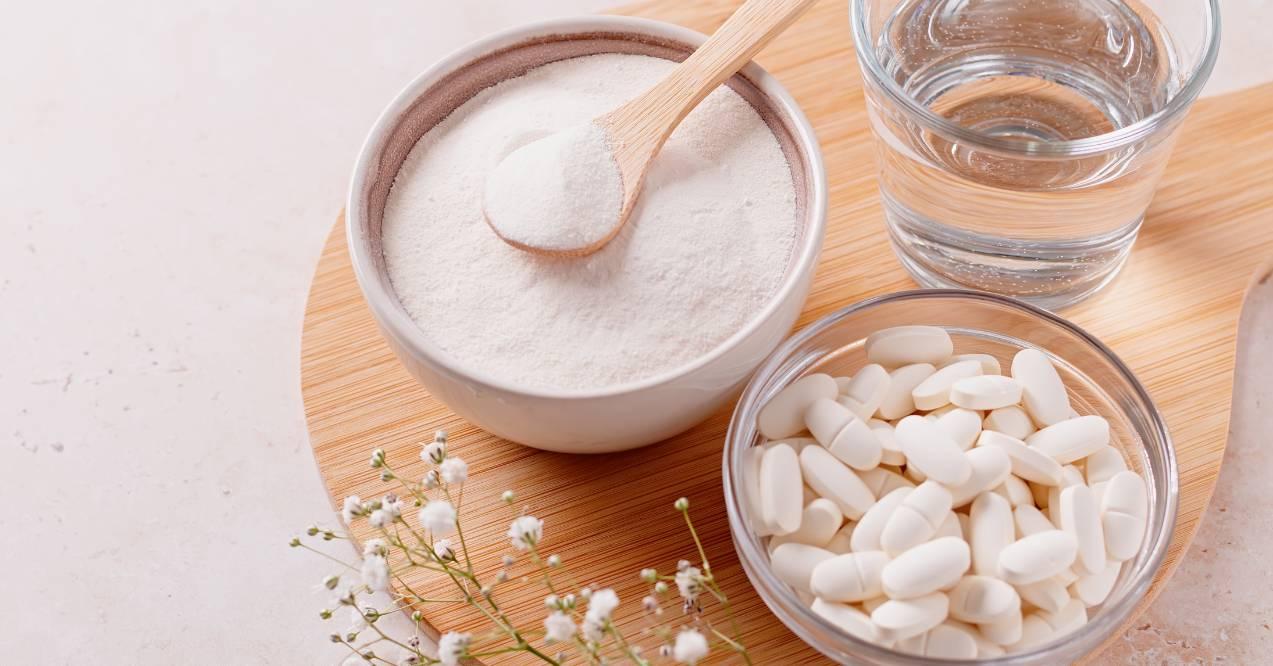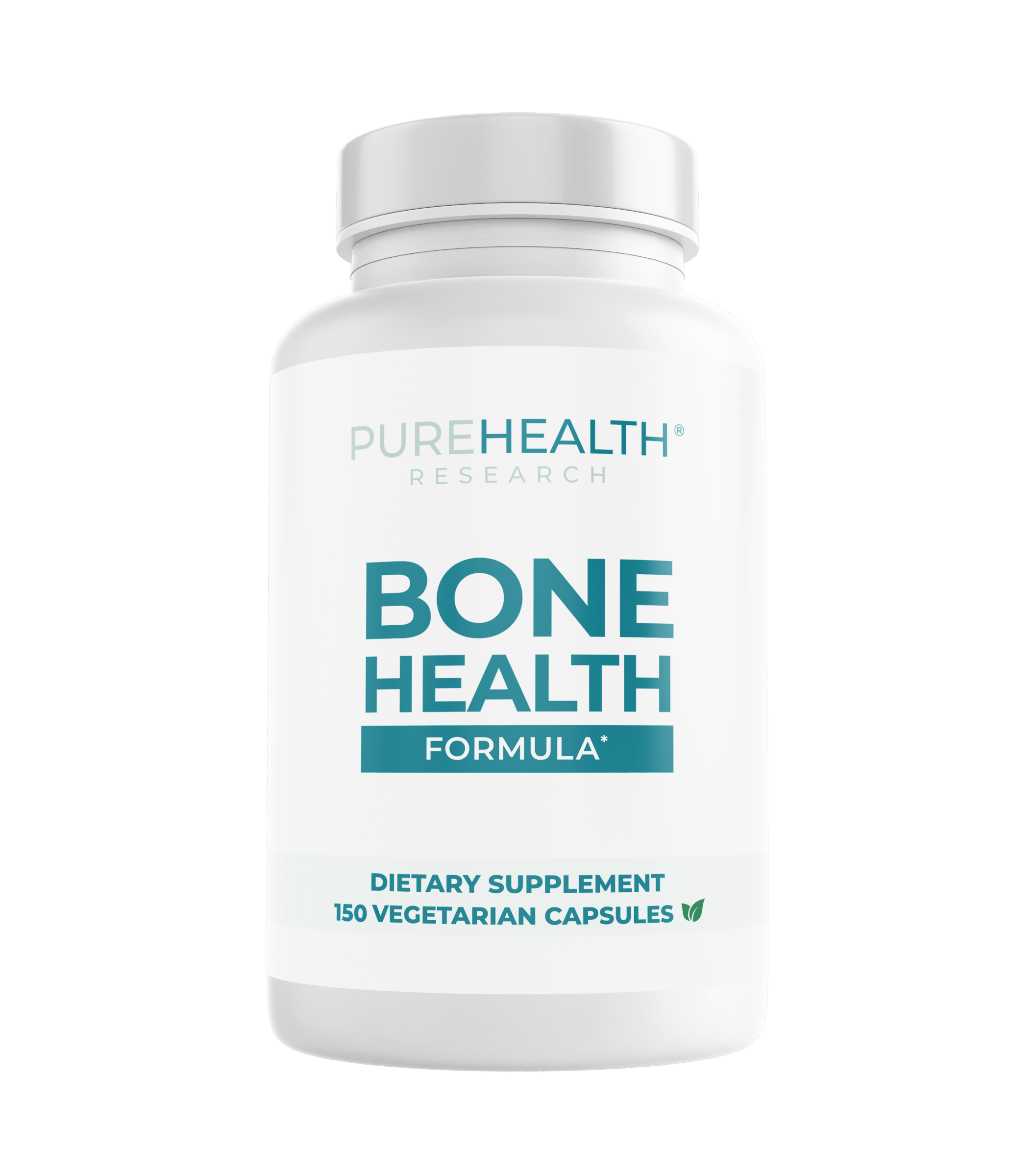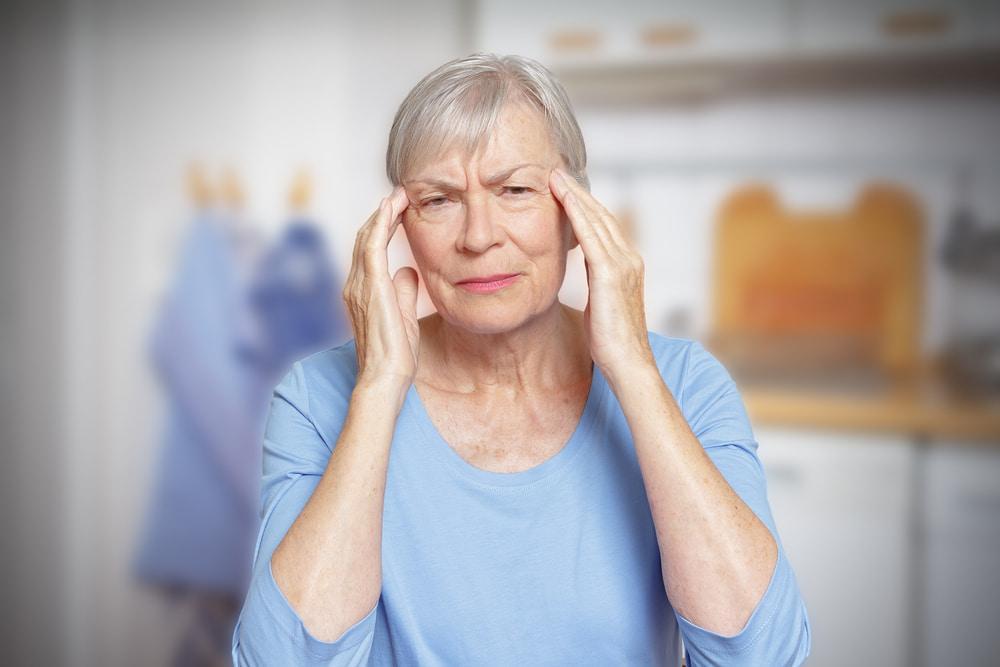Collagen for Menopause: Unlocking The Benefits
Explore how collagen for menopause supports symptom relief and promotes healthier aging for women. Take control of your life now!


Collagen for menopause is like a helpful flashlight for women going through menopause. This stage has many hormonal changes, and women often have different symptoms that can make their days harder. One thing that helps is collagen. Collagen is an essential protein. It helps to keep our skin stretchy, joints healthy, and bones strong.
As we get older, our bodies make less collagen – this occurs especially during menopause. When this happens, it can make us look older and feel uncomfortable. That’s where collagen supplements could help. Taking these could replace the collagen lost. It might even reduce some of the most common issues during menopause.
By knowing how collagen affects our bodies during menopause, we can make better preparations to manage symptoms. This will lead to improved quality of life.
What Is Collagen?
Collagen is a vital protein for bodies. It gives us strength, keeps us resilient, and helps us stay young. Basically, collagen acts like an important building block inside us. It ensures our skin stays flexible, our joints durable, and our overall body structure strong and agile.
When we are younger, this protein is plentiful in our bodies, keeping us healthy and lively. But as we get older, our bodies make less collagen. This slowdown in production brings on the signs of aging. It’s not just etched onto our skin but also affects our joints and overall body strength.
Collagen for Menopause
When a woman goes through menopause, her estrogen levels drop. This affects the production of collagen in her body, causing visible aging signs and affecting bone strength. Menopause can also cause dry skin and joint pain, impacting her day-to-day life.
Now, collagen could potentially be beneficial for women in menopause. This protein works like glue, holding tissues together and keeping the skin bouncy and hydrated. Also, collagen could help to keep bones and joints healthy and strong.
Sadly, the body produces less collagen during menopause. This is a period when customized diet and supplements, like collagen, become vital. They work like a support system, giving the body what it needs to recover, which results in healthier joints, bones, and skin.
When our knees crack, we can try the best vitamins for cracking knees. They help make collagen and reduce discomfort or worries tied to knee sounds. A personal supplement plan can raise low collagen levels. It also supplies the body with needed elements.
What Type of Collagen Is Best for Menopause?
There are different types of collagen, and it’s key to pick the ones that could help during menopause. Here are some types of collagen for menopause that could be very helpful:
- Collagen Type I – This collagen variant is the most common in our bodies and is crucial for boosting skin health. During menopause, falling estrogen levels can lead to skin drying and wrinkles. Type I collagen supplements could ease such conditions by improving skin moisture and flexibility.
- Collagen Type III – Regularly found with Type I, this type is helpful for preserving heart health and bone thickness. Menopause often increases bone loss and disease risk because hormonal shifts affect our bone strength. Using Type III collagen could maintain bone health during such a significant transformation.
- Hydrolyzed Collagen – Also known as collagen peptides, these smaller protein pieces come from full-length collagen protein. Our body can digest this type more swiftly due to its breakdown, assuring higher collagen delivery to areas in need.
Mixing collagen with other supplements could give a well-rounded way to deal with menopause. An example might include the best supplements for menopause brain fog.
How to Take Collagen
There’s a variety of ways to get this crucial protein into your system. Here’s a quick guide on how to make collagen a part of your routine.
Pick Your Form
Collagen supplements come in different shapes:
- Powder – Collagen powder offers a versatile way to get collagen. Its fine powder dissolves in drinks like water, coffee and tea. It also mixes into foods without changing the taste.
- Capsules – They provide an easy way to get collagen without taste or preparation. Capsules are a good choice for busy people or those who don’t eat foods that mix well with collagen powder.
- Liquids – They offer convenience for boosting collagen intake. These pre-mixed liquids minimize mixing and measuring, making them ideal for rapid consumption. Whether you’re in a hurry, looking for a post-workout boost, or seeking a hassle-free option, ready-to-drink collagen provides a solution.
Follow the Recommended Dosage
The benefit of collagen for menopause supplements largely depends on the right quantities. The maker’s stated dose is based on its specific formulation and potency. Follow these instructions to get the most out of your supplement and to avoid overdoing it.
Boost Effectiveness With Vitamin C
Collagen’s readiness to become part of your bloodstream, or its bioavailability, gets a big boost when you take it with vitamin C. This vitamin is important for making collagen, increasing the body’s ability to use the collagen you eat.
Focus on Quality
There is a wide variety of collagen supplements available, and they’re not all the same in quality. If you’re shopping for collagen, it’s key to pick one easily absorbed into the body. Also, aim for products from trusted brands. They should have a strong focus on safety and use clean, ethically sourced ingredients.
Using collagen can lead to questions on its effects on skin health. There might be worries about possible acne. If you are thinking about its pros and cons for skin, like acne, it’s good to have solid information. The article Can Collagen Cause Acne? dives deep into the ties between collagen and skin health.
What Foods Support Collagen Production?
Collagen maintains the skin, muscles, and connective tissues. We can boost our body’s collagen production with certain foods. These foods have essential nutrients like vitamin C, proline, glycine, and copper. To get more collagen, consider adding the below mentioned foods to your list.
Eggs
Eggs provide protein and nutrients. Specifically, egg yolks contain amino acids needed to make collagen. Proline and glycine in yolks help build collagen molecules. Eggs also give vitamin D for bones and immunity.
Chicken
Chicken provides collagen in its skin and bones. Slow cooking the whole bird or simmering bones for broth gives your body collagen. Chicken also has chondroitin and glucosamine, which may help joints.
Berries
Strawberries, raspberries, blueberries, and blackberries contain a lot of vitamin C. Vitamin C makes collagen strong and helps collagen fibers stick together well, keeping the skin firm. The bright colors of berries mean they have many antioxidants, which defend the skin from harm, keeping it healthy.
Beans
Beans provide protein, zinc, and amino acids that support collagen. They are also a plant source of copper, a mineral that plays a role in the body’s ability to form stable collagen fibers. This makes beans essential for anyone looking to enhance collagen synthesis.
In addition to the above foods, include the following in your diet to boost the production and use of collagen:
- Citrus fruits like oranges, lemons, and limes contain vitamin C. Eating citrus fruits helps your body make healthier skin and tissues.
- Garlic has sulfur, which helps in the production of collagen. It also contains elements that repair damaged collagen. Adding garlic to meals boosts collagen levels and improves skin.
- Leafy greens like spinach and kale contain vitamin C and antioxidants. Antioxidants protect collagen from damage while vitamin C directly helps make it.
- Bone broth provides a direct source of collagen. When bones and meat tissues boil, collagen releases into the broth. Drinking broth lets the body use the collagen and nutrients for its production.
Collagen Boosters Don’t Stop There
While collagen is vital for menopause relief, don’t overlook the Bone Health Formula, supported by Dr. Holly Lucille. This specialized blend targets the common issue of decreasing bone density during menopause with a potent mix of ingredients:
- Vitamins C, D, and K – Essential for overall bone health.
- Magnesium – Supports bone integrity and density.
- Zinc – Crucial for bone tissue growth and repair.
- Copper and Manganese – Aid in bone strength and formation.
- Potassium – Helps retain calcium in bones, enhancing their durability.
This formula isn’t just about supplementing calcium; it’s a comprehensive approach to fostering firm, strong bones. The inclusion of Vitamin C is particularly noteworthy as it’s essential for collagen production, which is critical for bone mineralization. Together, these components not only aim to inhibit bone loss but also promote bone renewal and strength, potentially reducing fracture risk.
It highlights menopause as a time for new beginnings, focusing on resilience and independence through well-chosen health and wellness strategies.
Conclusion
Menopause brings hormonal shifts that affect skin, joints, and bone health, largely due to declining collagen levels. Supplementing with high-quality collagen, particularly Type I, Type III, and hydrolyzed collagen, along with collagen-rich foods like eggs, chicken, berries, and beans, can help maintain hydration, elasticity, and strength. By prioritizing nutrition and smart supplementation, women can navigate menopause with resilience, confidence, and long-term well-being.
Yes. Collagen supplements can help reduce symptoms of lower estrogen like dry skin and sore joints. They also support strong bones, addressing bone loss and disease risk. But it is important to consult a doctor before consuming any supplement.
The best collagen for menopause is Type I and Type III, as they support skin, joints, and bones. Hydrolyzed collagen (collagen peptides) is the most absorbable form. For best results, choose a high-quality supplement with vitamin C to enhance absorption.
Yes, as collagen production declines with age, especially during menopause. Supplementing with collagen can help improve skin hydration, reduce wrinkles, and support joint and bone health. A high-quality collagen supplement paired with a nutrient-rich diet can promote overall well-being.
Sign up for our Healthy Living newsletter!
Advertisement. This site offers health, wellness, fitness and nutritional information and is designed for educational purposes only. You should not rely on this information as a substitute for, nor does it replace, professional medical advice, diagnosis, or treatment. If you have any concerns or questions about your health, you should always consult with a physician or other health-care professional. Do not disregard, avoid or delay obtaining medical or health related advice from your health-care professional because of something you may have read on this site. The use of any information provided on this site is solely at your own risk.









